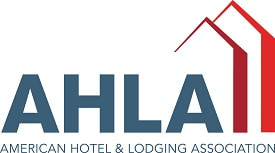Ask the Experts: How Will the Department of Labor's New Independent Contractor Regulation Impact Businesses?
By: Littler Mendelson P.C

Q: If my business engages independent contractors to perform a variety of services, how will the U.S. Department of Labor's new independent contractor regulation impact how we do business?
A: With the rise of the gig economy, the service industry has evolved with more and more workers providing services as independent contractors. A change in how independent contractors are classified has the potential to alter the relationship drastically between an establishment and its service providers. Preliminarily, it is important to understand why the definition of “independent contractor” matters. The Fair Labor Standards Act (FLSA) is a federal law that sets the federal minimum wage and overtime requirements for employees. Those standards apply only to employees and not independent contractors, however. The distinction between employee and independent contractor determines whether the FLSA applies, i.e., whether the individual is entitled to federal minimum wage and overtime.
A: With the rise of the gig economy, the service industry has evolved with more and more workers providing services as independent contractors. A change in how independent contractors are classified has the potential to alter the relationship drastically between an establishment and its service providers. Preliminarily, it is important to understand why the definition of “independent contractor” matters. The Fair Labor Standards Act (FLSA) is a federal law that sets the federal minimum wage and overtime requirements for employees. Those standards apply only to employees and not independent contractors, however. The distinction between employee and independent contractor determines whether the FLSA applies, i.e., whether the individual is entitled to federal minimum wage and overtime.
On January 10, 2024, the U.S. Department of Labor published a final rule adopting a six-factor “economic reality” test to determine the relationship between an employer and a worker. That test seeks to ascertain whether the worker depends on the potential employer for continued employment or is operating an independent business. The factors to be considered are:
1. The worker’s opportunity for profit or loss;
2. Investments by the worker and potential employer;
3. The degree of permanence of the relationship;
4. The nature and degree of the potential employer’s control over the work;
5. The extent to which the work is “integral” to the potential employer’s business; and
6. The worker’s skill or initiative.
1. The worker’s opportunity for profit or loss;
2. Investments by the worker and potential employer;
3. The degree of permanence of the relationship;
4. The nature and degree of the potential employer’s control over the work;
5. The extent to which the work is “integral” to the potential employer’s business; and
6. The worker’s skill or initiative.
The Rule discusses each of the factors in detail. While no one factor is controlling, the critical analysis is whether the individual is operating like a business, or is reliant upon the potential employer. While an independent contractor’s purchase and use of their own tools is helpful to drawing that distinction, the distinction is eroded if the purchase of the tools is mandated by the potential employer. It is also important to note that the Department of Labor generally favors finding an employer-employee relationship by default and only reluctantly recognizes independent contractor status. Therefore, businesses should review carefully these factors when determining the status of their workers.
The Rule becomes effective on March 11,2024. It should also be noted that the Rule remains under legal challenge. As businesses prepare for the implementation of this new standard, it will remain important to consult with qualified counsel.
More information about MRLA Legal Partner Littler Mendelsohn PC can be found on their website.
The MRLA has partnered with a strong team of law firms that are industry experts, available for counsel on any legal matters affecting the hospitality industry. MRLA Members get exclusive access to legal help from experts like Littler Mendelsohn PC, with up to 15 FREE minutes of legal consultations with one of our partnering law firms. Click the link below to learn more!






